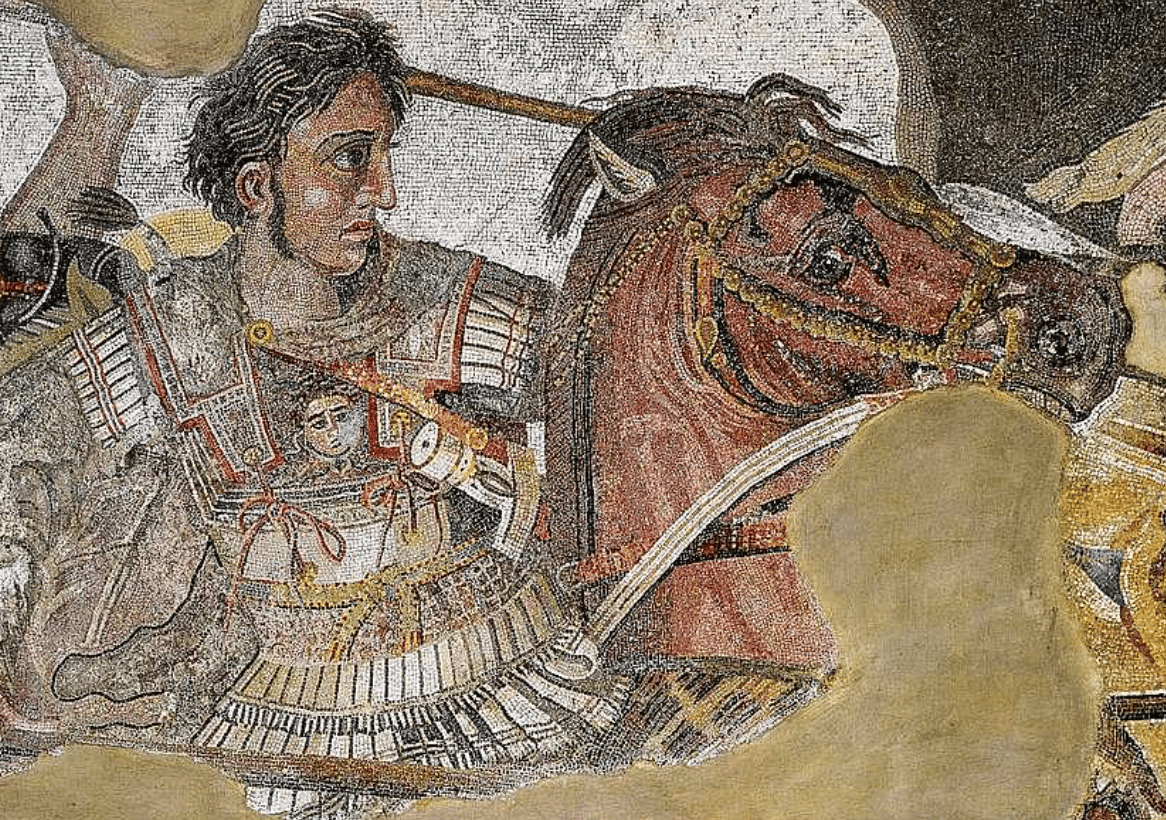- The Explorer's Journal
- Posts
- Who was Alexander, and what made him "the Great"?
Who was Alexander, and what made him "the Great"?
All you need to know about history's greatest general.

Hello everyone, and welcome to the first edition of The Explorer’s Journal! Todays edition is about the life of Alexander III of Macedon, more commonly known as Alexander the Great. Without further ado, let’s jump right in.
Alexander III of Macedon, born in 356 BCE in the kingdom of Macedonia, is one of history's most iconic figures. From a young age, Alexander was groomed for greatness by his father, King Philip II, and his mother, Olympias, who instilled in him a sense of personal greatness. Under the tutelage of Aristotle, Alexander developed a deep understanding of Greek culture, philosophy, and science, which shaped his worldview and fueled his ambitions of conquest.
At the age of 20, Alexander ascended to the Macedonian throne following his father's assassination. Unlike most young kings, who might have struggled under the weight of leadership, Alexander quickly demonstrated his military and political skill by securing his power at home and preparing for the conquest of the Persian Empire. His boldness, charisma, and strategic brilliance made him a natural leader, earning the loyalty of his soldiers and the fear of his enemies.

In 334 BCE, Alexander embarked on his legendary campaign against Persia. Over the next decade, he led his army on a series of unparalleled military victories, never losing a battle. His victories at Granicus, Issus, and Gaugamela are among the most famous in military history, displaying his tactical genius and ability to inspire his troops. By age 30, Alexander had created one of the largest empires the world had ever seen, stretching from Greece to Egypt and as far east as India.
One of Alexander’s greatest achievements as a general was his triumph at the Battle of Gaugamela. Just north of what is the modern day city of Erbil, Alexander led his outnumbered army of ~47,000 men into battle against the forces of the Persian Achaemenid Empire, led by the King Darius III. Despite the numerical disadvantage, Alexander’s brilliant tactics and strategic use of his cavalry led to the complete defeat against the larger Persian forces. Alexander’s triumph at Gaugamela was the final blow to the Achaemenid Empire, giving the Macedonian king total victory over one of the worlds most powerful empires.
But Alexander's greatness wasn't limited to his military achievements. What truly set him apart from history’s other great conquerors was his vision of a unified world. He didn't just conquer lands; he sought to blend cultures and create a new, cosmopolitan society. Alexander founded over 20 cities, many of which bore his name, the most famous being Alexandria in Egypt. These cities became hubs of learning and culture, spreading Greek influence across the known world. His policy of Hellenization—promoting the adoption of Greek culture and language in conquered lands—was at the center of his vision and helped create a shared cultural framework that endured long after his empire shattered.
Alexander's legacy is also marked by his respect for the diverse cultures within his empire. He adopted aspects of Persian dress and customs, married a Persian princess, and encouraged his soldiers to marry local women, blending Greek and Eastern traditions. This cultural fusion was unprecedented at the time and laid the foundation for the Hellenistic Age, a period of cultural flourishing that influenced art, science, and philosophy for centuries.
Despite his death at 32 in 323 BCE, Alexander's impact on history is immeasurable. His empire may have crumbled after his death, but the skeleton of his kingdom served as the framework of much of the modern world as we all know it today. Stories of his life and tactical genius continue to teach generations of political and military leaders around the globe, and inspires the rest of us to turn our ambitions into our reality.
Thanks for reading this edition of The Explorer’s Journal! The next edition will be sent out on Saturday at 10:00 A.M EST. Keep an eye on your inbox!
I also kindly ask for anyone who enjoyed this edition to spread the word about The Explorer’s Journal. If you know anybody that would enjoy my writing, I encourage you to send them the link below to invite them to subscribe. Thanks again for reading.
Until next time,
The Explorer